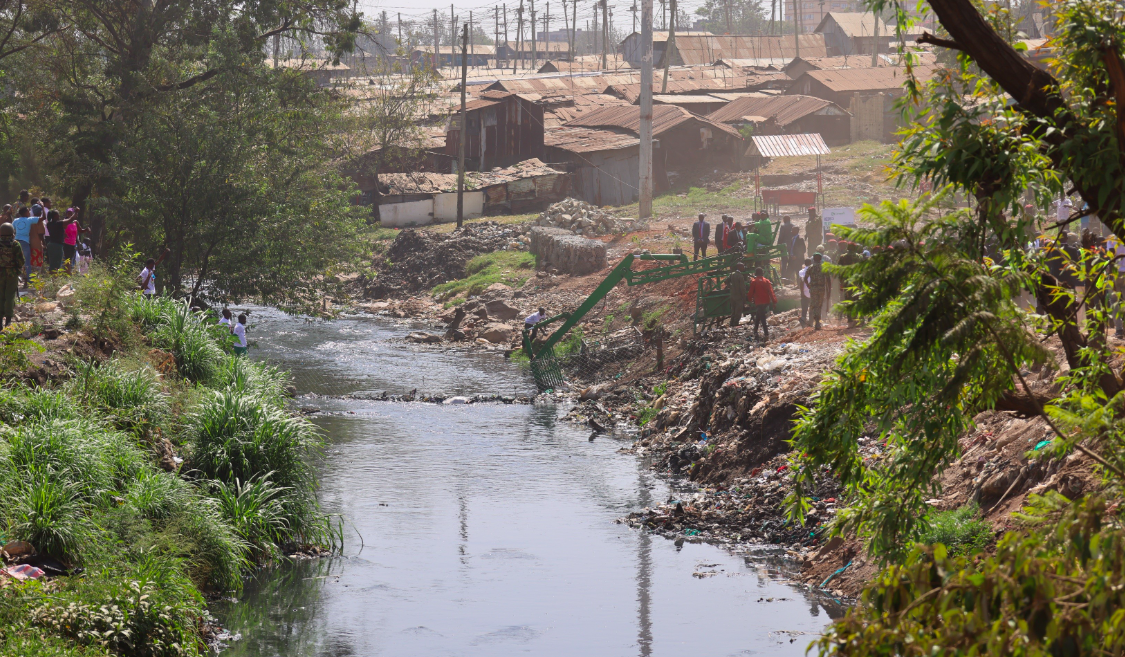 No amount of cash
for cleaning will guarantee the future of the Nairobi River unless it’s legally
enabled to protect itself from humans sooner rather than later.
No amount of cash
for cleaning will guarantee the future of the Nairobi River unless it’s legally
enabled to protect itself from humans sooner rather than later.
In 2017, New Zealand granted the Whanganui River legal personhood through
an Act of Parliament. Since then, the river's
fortunes have improved.
As Kenya, led by President William
Ruto, grapples with how to clean up and protect the Nairobi River, it would be
wise to borrow a leaf from New Zealand.
To achieve this, Parliament should pass a law making the Nairobi River a
legal person. With such
legislation, the Nairobi River will have a separate legal identity, similar to
that of a registered company or foundation. Granting the river a legal
personality will give it the legal standing to sue and be sued. This will
guarantee the river's ability to protect itself from encroachers and polluters.
What does legal
personality mean for a natural resource like the Nairobi River? To begin with,
the law defines a legal person as a human or non-human entity with legal rights
and subject to obligations. Thus, the
Act will give the Nairobi River all the rights, powers, duties, and liabilities
of a legal person.
However, since the
River is not human and cannot act independently, the Act incorporating the
Nairobi River as a legal person should establish its governing board of
directors, which should be made up of relevant eminent persons,
environmentalists, and the UN Environment.
The board should be
charged with the solemn responsibility of ensuring that the river’s best
interests are protected.
Like a company,
the Nairobi River, through its Governing Board, will be able to own property,
sign contracts, pay taxes on its income, hire staff, and sue and be sued in
court.
The river can
license recreational facilities to operate on its riparian land, charge a fee
for vessels to transport goods and people, and levy fees for certain types of commerce,
ceremony, or sports along its watercourses and shores.
That way, the
government will not only recoup its investment in cleaning up the river (e.g., the
Sh50 billion promised by President Ruto recently) but also enjoy accruing taxes
for prosperity.
More importantly, the
aquatic animals, the people of Nairobi, and its environs will enjoy an
unparalleled clean and healthy environment as enshrined in Art 42 of the
Constitution of Kenya 2010.
Environmental legal
personhood as a means to protect nature has been discussed in academic circles
since the 1970s. In Should Trees Have Standing?
Christopher D. Stone, an American law professor, argued that environmental
interests should be recognized apart from human ones.
Stone’s work
influenced many scholars, including James Morris and Jacinta Ruru, who wrote Giving Voice to Rivers, arguing that
waterways should be given legal personhood contrary the 1972 Stockholm
Conference which empathized that “safeguarding the homo sapiens” is the primary
objective of environmental laws.
The shift from
protecting nature for the benefit of men (anthropocentric) to protecting nature
for the benefit of nature (eco-centric) is evident in several countries,
including New Zealand, Ecuador, Bolivia, Panama, Bangladesh, India, Spain, and the United States.
Ecuador, for example,
became the first country to declare in its constitution that nature is a legal
person. Articles 10 and
71-74 of the Constitution recognize the inalienable rights of ecosystems,
give individuals the authority
to petition on the behalf of ecosystems, and require the government to
remedy violations of nature’s rights, including “the right to exist, persist, maintain and
regenerate its vital cycles, structure, functions and its processes in
evolution.”
The countries
listed above are great examples of how environmental laws should focus on protecting
nature for the benefit of nature rather than the benefit of man.
Kenya can learn
from these examples as it grapples with how to protect its priceless natural
resources, such as the Nairobi River, sustainably.
No amount of cash
for cleaning will guarantee the future of the Nairobi River unless it’s legally
enabled to protect itself from humans sooner rather than later.
The writer is a communication specialist and an
environmental law expert







![[PHOTOS] Guardian Angel bus catches fire in Kikuyu](/_next/image?url=https%3A%2F%2Fcdn.radioafrica.digital%2Fimage%2F2025%2F04%2F58287f0a-f201-4a78-87f0-6f147ad8ba8a.jpg&w=3840&q=100)



